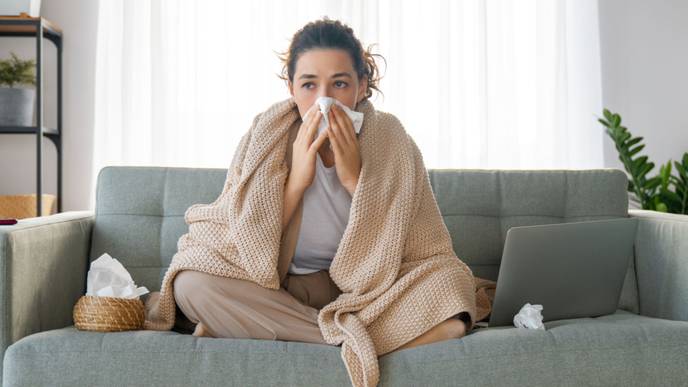New Study Sheds Light on Impact of Fluvoxamine on COVID Symptoms in Certain Cases

11/27/2023
New Study Sheds Light on Impact of Fluvoxamine on COVID Symptoms in Certain Cases
Fluvoxamine, a commonly prescribed antidepressant, has been found to potentially reduce the severity of COVID-19 symptoms in certain cases, according to a recent study. The study, conducted by a team of researchers, aimed to investigate the effects of fluvoxamine on COVID-19 patients and provide insights into its potential as a treatment option.
Background
COVID-19, caused by the novel coronavirus SARS-CoV-2, has affected millions of people worldwide since its emergence in late 2019. The disease can range from mild to severe, with some patients experiencing severe respiratory distress and other complications. As researchers continue to explore potential treatments, repurposing existing drugs has become an area of interest.
The Study
The study involved a randomized, double-blind, placebo-controlled trial with a total of 120 COVID-19 patients. Half of the participants received fluvoxamine, while the other half received a placebo. The researchers monitored the patients' symptoms and assessed their clinical outcomes over a period of 15 days.
The results of the study showed that patients who received fluvoxamine experienced a significant reduction in the severity of their symptoms compared to those who received the placebo. The drug was particularly effective in patients with mild to moderate symptoms, with a notable decrease in the risk of clinical deterioration.
Possible Mechanisms
While the exact mechanisms by which fluvoxamine may impact COVID-19 symptoms are not yet fully understood, researchers speculate that the drug's anti-inflammatory and immunomodulatory properties could play a role. Fluvoxamine has been shown to reduce the production of pro-inflammatory cytokines, which are known to contribute to the cytokine storm observed in severe COVID-19 cases.
Implications and Future Research
The findings of this study provide valuable insights into the potential benefits of fluvoxamine in managing COVID-19 symptoms, particularly in patients with mild to moderate cases. However, further research is needed to confirm these results and determine the optimal dosage and treatment duration.
It is important to note that fluvoxamine should not be used as a self-medication for COVID-19 without proper medical guidance. Patients should consult their healthcare providers before considering any new treatments.
Conclusion
The new study on fluvoxamine's impact on COVID-19 symptoms offers promising results and highlights the potential of repurposing existing drugs for the management of this global pandemic. As researchers continue to explore various treatment options, it is crucial to conduct further studies to validate these findings and ensure the safety and efficacy of any potential treatments.
© Article Copyright 1999-2023
Life Technology™.
If you would like to republish the content of this or any other article from www.lifetechnology.com for commercial purposes visit
Life Technology™ News Content Syndication Licence. If you would like to republish the content of this or any other article from www.lifetechnology.com for non commercial purposes visit
Copyright And Royalty Free RSS Feeds For Commercial And Non Commercial Use.
If you would like for us to publish your article at www.lifetechnology.com visit
Publish Your Article At Life Technology™. If you would like to advertise here and on all 100,000+ pages of www.lifetechnology.com visit
Advertise At Life Technology™. For corporate sponsorship of www.lifetechnology.com visit
Corporate Sponsorship.
Since 1999 Life Technology™ has published medical science and technology news content totally free of charge. Because we do not charge a subscription fee we would kindly request that you
Make A Donation To Life Technology™and please, do share this article with your coworkers, friends, family and favorite social media platform.
Life Technology™ Medical NewsFeedburnerGoogleRSSLife Technology™ Science NewsFeedburnerGoogleRSSLife Technology™ Technology NewsFeedburnerGoogleRSS

Facebook Comments